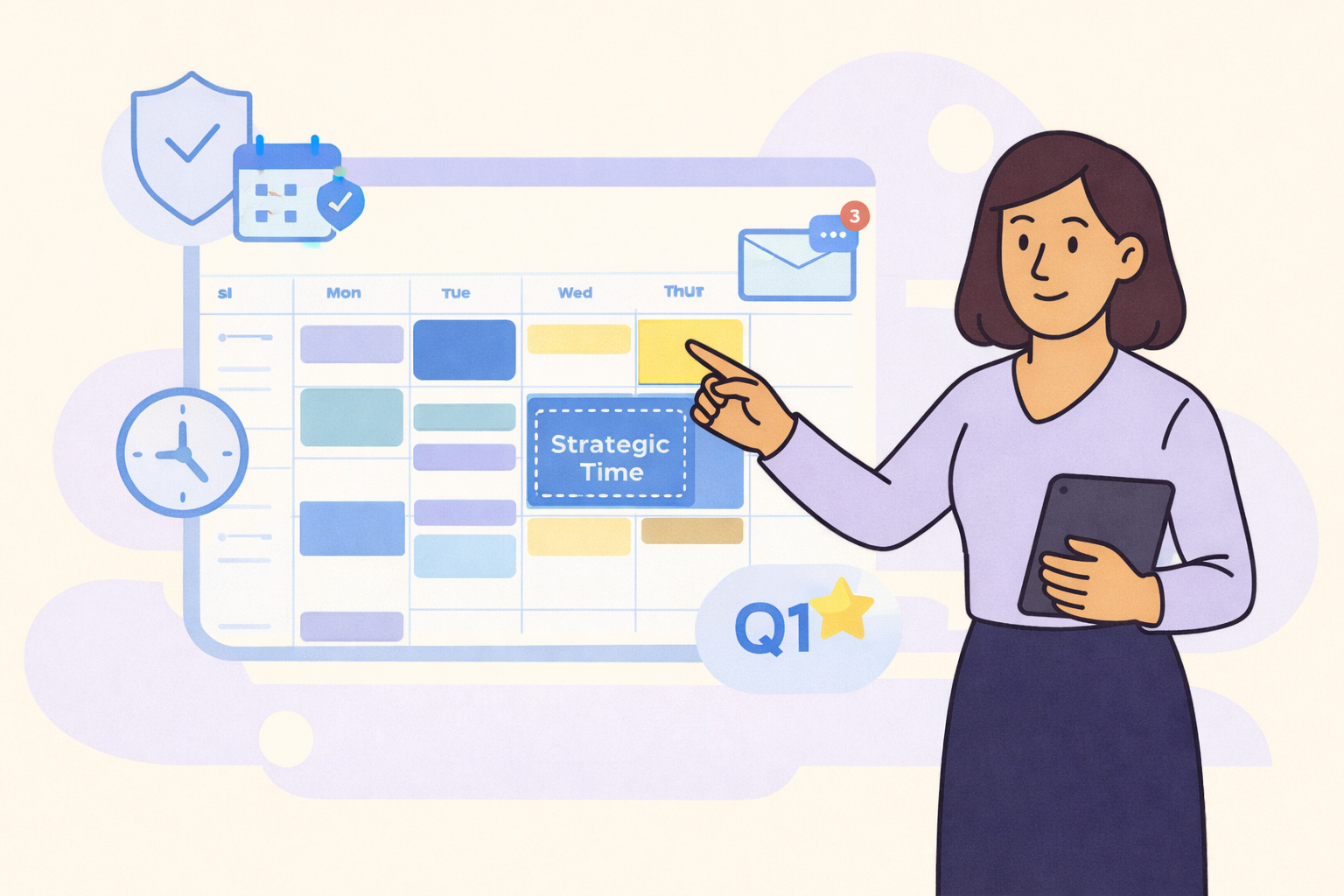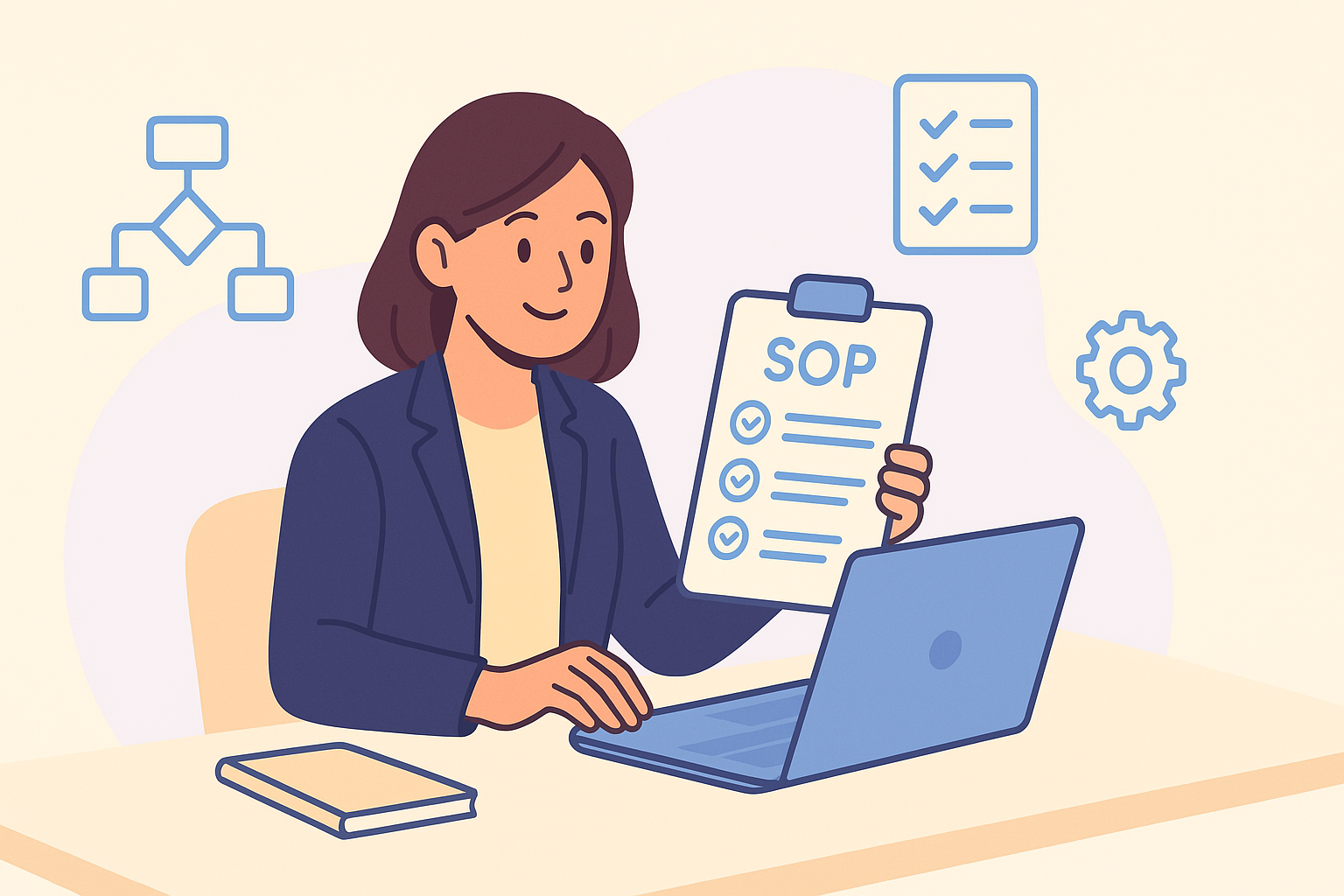Customer Service Empathy: Training for Genuine Connection
Discover the power of customer service empathy: training for genuine, lasting connections. Elevate your service approach today!
.png)
Customer service empathy is more than a service skill; it's the cornerstone of our culture at HelpFlow. Beyond training, we actively foster an environment where empathy thrives and resonates throughout the organization - and of course, into the customer service work we do with our 100+ brand partners connected to our service.
In this blog, we'll share how we integrate empathy in a few ways: First, we’ll talk about how to train empathy in customer service to provide a blueprint for nurturing empathetic agents. Second, we’ll explain how we’ve built an empathetic culture that is embedded into our daily operations. Third, we’ll explain how we constantly reinforce empathy in the team to ensure that this foundational value continuously grows and shapes our approach to service.
Here at HelpFlow, we recognize that genuine empathy is at the core of exceptional customer service. It's a challenging skill to cultivate, one that goes beyond traditional training programs. Yet, through our experience with over 100 e-commerce brands, we've developed effective training resources that enable our agents to not only learn but also embody customer service empathy in every interaction.
Let’s unpack the essence of empathy in action and how it translates into a customer service team that genuinely cares.
Customer Service Empathy: Training Empathy in Customer Service

Training in customer service empathy isn't just about knowing what to say; it's about understanding and connecting with what the customer feels. With 18 years of industry experience, I've witnessed the importance of this firsthand. At HelpFlow, we're committed to translating empathy into action in every customer interaction.
First, we ensure that the team understands that empathy is important and integral to the customer's overall experience. Empathy is the ability to sense other people's emotions, coupled with the ability to imagine what someone else might be thinking experiencing, or feeling.
But in customer service, it goes beyond just that simple definition. It involves actively listening to customers, acknowledging their emotions, and also responding in a way that validates their emotions or what they're feeling at the moment. This makes them feel validated and that someone is listening to them.
HelpFlow’s training approach is a blend of art and science. We perform a needs analysis, pinpointing exactly where our agents can bolster their empathy game. We do this by conducting assessments with our agents.
With this approach, we can gather data and combine it with feedback from our Quality Team. We can pinpoint specific areas where improvements in customer service empathy can be made. This could involve enhancing skills such as active listening and emotional intelligence, enabling agents to discern from the customer's words whether they are happy or frustrated.
How do we know it's working? Feedback. Regular, insightful, and always pushing for growth. Also, we have measures in place to check and see if the agent is indeed able to manifest or exhibit empathy in role-based interactions.
As I always tell our agents, "Empathy is not just merely saying, I'm sorry, or I apologize, it's not just limited to that because it goes even beyond." At HelpFlow, it's about ensuring that each customer feels heard, understood, and valued. That's empathy in customer service, the HelpFlow way. So that’s the specifics of how we train empathy, but how do we foster it in our culture?
Building an Empathetic Culture Within the Company
.png)
Creating an empathetic culture within HelpFlow isn't just about training; it's a mission that's lived and breathed at every level of the organization, especially from leadership.
To cultivate customer service empathy within the organization, we identified three barriers that we needed to overcome so that empathy wasn't just something we showed to our clients but became a culture well-established within the organization.
- Cultural Barrier - our team members come from different walks of life and we deal with people from different countries. There’s always going to be a cultural difference among employees and customers. It presents itself as a big challenge, especially if our agents are not aware or familiar with the types of customers that we have. Building cultural awareness and sensitivity through training is very important. Fostering an inclusive work environment that encourages our agents to not just simply look at face value and what they see but they also have to understand where are our customers coming from in terms of demographics, where are they located, etc. so they know how to respond appropriately.
- Resistance to Change – it’s the basic human response to resist change. However, it’s important that our employees understand that as cliche as it may sound, change is the only thing that’s constant. Employees may be resistant to adapting to new behaviors or practices when interacting with customers, especially if they are already used to doing it a certain way. So we communicate clearly to them that embracing and adapting to change is important as culture, customer, and merchant needs are changing. This helps our employees understand and embrace that they have to change the ways that they interact with their peers and especially with our customers.
- Consistency - one of the biggest challenges that we encounter is maintaining consistency in using empathy. How do we ensure that our agents are consistent? We do audits and reviews. We also equip them with process flows and chat flows that they have to follow that integrate empathy into them. This helps us ensure that we remain consistent in terms of providing service to our customers. Whenever an opportunity arises to address a concern or to improve an agent’s empathy, we work together as a team, we come up with action plans to address the opportunity and cascade it to the entire organization.
Reinforcing Empathy At HelpFlow

At HelpFlow, nurturing customer service empathy is an ongoing journey integrated into many aspects of our operations. Here's how we ensure empathy remains a constant in our daily operations:
- Regular Coaching and Feedback: Regular coaching and feedback are fundamental in reinforcing empathy within our team. Our approach ensures that each agent's empathetic skills are not just evaluated, but also honed with precision. Through continuous, structured feedback sessions, agents learn what aspects of their empathetic engagement are impactful and which areas are growth opportunities. This iterative process of feedback ensures that our agents' empathy skills are not static but evolve and adapt, reflecting the dynamic nature of customer service interactions.
- Peer-to-Peer Support: This part of the company ethos not only encourages agents to exchange insights and solutions but also to support each other in personal and professional growth. This reciprocal environment enhances the team’s ability to deliver empathetic customer service by drawing on a diverse range of experiences and viewpoints. Agents benefit from each other's successes and challenges, creating a dynamic and supportive workspace that values the shared goal of empathetic engagement.
- Continuous Learning: We provide agents with ongoing training to ensure their empathy skills remain sharp and informed by the latest customer service insights. These sessions revolve around closing any knowledge gaps and providing agents with new strategies to enhance their empathetic connections with customers.
- Rewards and Recognition: Recognizing and celebrating our agents' achievements is key. When they excel in delivering empathetic service, we highlight these moments, motivating the entire team to strive for such excellence and reinforcing the value of empathy in every interaction.
- Customer Surveys and Agent Audits: Customer feedback and agent performance audits are instrumental in reinforcing empathy. They offer a dual perspective, ensuring our service remains genuinely customer-centric. By acting on this feedback, we continually refine our empathetic approach to customer service.
By incorporating customer service empathy into everything from our onboarding to our leadership training, and from our internal reward systems to our recruitment process, we at HelpFlow don’t just advocate for empathy—we actively practice and refine it every day.
Measuring the Impact of Empathy

At HelpFlow, we don't just implement initiatives; we measure their impact meticulously. The main Key Performance Indicator (KPI) we rely on when it comes to empathy is Customer Satisfaction (CSAT). It provides a direct reflection of how our customers feel about the service they've received. But our measurement doesn't stop at customer happiness.
Agent satisfaction is another KPI we hold in high regard. Understanding our agents' contentment and support levels is crucial. They're the frontline of our service, and their satisfaction translates directly into customer experiences. We listen to them, value their feedback, and address their needs because when they feel heard and supported, they're empowered to extend the same level of care and understanding to our customers.
Through a balance of CSAT, agent satisfaction surveys, and comprehensive agent reviews, we aim to create a cycle of empathy that flows from our team to our customers and back.
Time to Promote Empathy Within Your Organization
Let's address the reality of customer service empathy.
Customer service empathy is the hidden ingredient that elevates a good experience to an amazing one. It's not merely a pleasant addition; it's a transformative factor that fosters customer loyalty. We prioritize ensuring our team isn't just knowledgeable about products but also skilled in understanding and empathizing with people.
Want to bring this awesomeness to your team? Let's chat! A Strategy Call with us is like a masterclass in customer care. You'll walk away with some serious know-how, ready to take your customer service from okay to outstanding. And even if we don’t end up working together, you'll still get heaps of tips to try out with your team.
So, what do you say? Ready to dial up your customer service game? Book a Strategy Call and let's make it happen!
About Cherry Martin, HelpFlow’s Learning Solutions Manager:
With nearly two decades of experience in the BPO industry and a rich background in training and development since 2006, Cherry brings a wealth of knowledge to our team, having joined HelpFlow in 2019. She is the architect behind our new hire training programs, continuous learning, and agent development, expertly crafting training timelines tailored to the intricate needs of our clients.
Related posts










